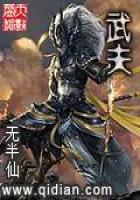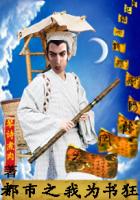Then the indaba began, Arcoll leading off. It was a fine speech he made, one of the finest I have ever listened to. He asked them what their grievances were; he told them how mighty was the power of the white man; he promised that what was unjust should be remedied, if only they would speak honestly and peacefully; he harped on their old legends and songs, claiming for the king of England the right of their old monarchs. It was a fine speech, and yet I saw that it did not convince them. They listened moodily, if attentively, and at the end there was a blank silence.
Arcoll turned to me. 'For God's sake, Davie,' he said, 'talk to them about Laputa. It's our only chance.'
I had never tried speaking before, and though I talked their tongue I had not Arcoll's gift of it. But I felt that a great cause was at stake, and I spoke up as best I could.
I began by saying that Inkulu had been my friend, and that at Umvelos' before the rising he had tried to save my life. At the mention of the name I saw eyes brighten. At last the audience was hanging on my words.
I told them of Henriques and his treachery. I told them frankly and fairly of the doings at Dupree's Drift. I made no secret of the part I played. 'I was fighting for my life,' I said.
'Any man of you who is a man would have done the like.'
Then I told them of my last ride, and the sight I saw at the foot of the Rooirand. I drew a picture of Henriques lying dead with a broken neck, and the Inkulu, wounded to death, creeping into the cave.
In moments of extremity I suppose every man becomes an orator. In that hour and place I discovered gifts I had never dreamed of. Arcoll told me afterwards that I had spoken like a man inspired, and by a fortunate chance had hit upon the only way to move my hearers. I told of that last scene in the cave, when Laputa had broken down the bridge, and had spoken his dying words - that he was the last king in Africa, and that without him the rising was at an end. Then I told of his leap into the river, and a great sigh went up from the ranks about Me.
'You see me here,' I said, 'by the grace of God. I found a way up the fall and the cliffs which no man has ever travelled before or will travel again. Your king is dead. He was a great king, as I who stand here bear witness, and you will never more see his like. His last words were that the Rising was over.
Respect that word, my brothers. We come to you not in war but in peace, to offer a free pardon, and the redress of your wrongs. If you fight you fight with the certainty of failure, and against the wish of the heir of John. I have come here at the risk of my life to tell you his commands. His spirit approves my mission. Think well before you defy the mandate of the Snake, and risk the vengeance of the Terrible Ones.'
After that I knew that we had won. The chiefs talked among themselves in low whispers, casting strange looks at me. Then the greatest of them advanced and laid his rifle at my feet.
'We believe the word of a brave man,' he said. 'We accept the mandate of the Snake.'
Arcoll now took command. He arranged for the disarmament bit by bit, companies of men being marched off from Inanda's Kraal to stations on the plateau where their arms were collected by our troops, and food provided for them. For the full history I refer the reader to Mr Upton's work. It took many days, and taxed all our resources, but by the end of a week we had the whole of Laputa's army in separate stations, under guard, disarmed, and awaiting repatriation.
Then Arcoll went south to the war which was to rage around the Swaziland and Zululand borders for many months, while to Aitken and myself was entrusted the work of settlement. We had inadequate troops at our command, and but for our prestige and the weight of Laputa's dead hand there might any moment have been a tragedy. The task took months, for many of the levies came from the far north, and the job of feeding troops on a long journey was difficult enough in the winter season when the energies of the country were occupied with the fighting in the south. Yet it was an experience for which I shall ever be grateful, for it turned me from a rash boy into a serious man. I knew then the meaning of the white man's duty. He has to take all risks, recking nothing of his life or his fortunes, and well content to find his reward in the fulfilment of his task. That is the difference between white and black, the gift of responsibility, the power of being in a little way a king; and so long as we know this and practise it, we will rule not in Africa alone but wherever there are dark men who live only for the day and their own bellies. Moreover, the work made me pitiful and kindly. I learned much of the untold grievances of the natives, and saw something of their strange, twisted reasoning. Before we had got Laputa's army back to their kraals, with food enough to tide them over the spring sowing, Aitken and I had got sounder policy in our heads than you will find in the towns, where men sit in offices and see the world through a mist of papers.
By this time peace was at hand, and I went back to Inanda's Kraal to look for Colin's grave. It was not a difficult quest, for on the sward in front of the merula tree they had buried him.
I found a mason in the Iron Kranz village, and from the excellent red stone of the neighbourhood was hewn a square slab with an inscription. It ran thus: 'Here lies buried the dog Colin, who was killed in defending D. Crawfurd, his master.
To him it was mainly due that the Kaffir Rising failed.' I leave those who have read my tale to see the justice of the words.















